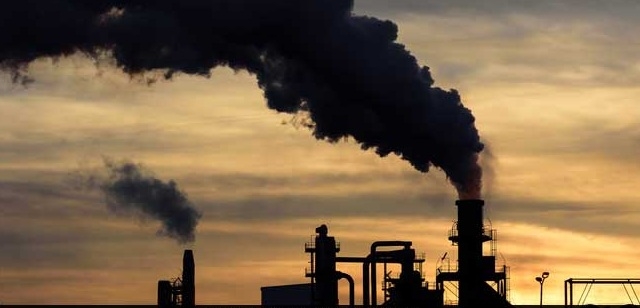Lockdowns led to decline in global CO2 emissions
| Date :15-Oct-2020 |

NEW DELHI ;
The research found that during the first six months of this year, 8.8 per cent less CO2 was emitted than in the same period in 2019 -- a total decrease of 1,551 million tonnes
THE lockdown measures enforced to prevent the spread of COVID-19 were associated with an unprecedented decline in global carbon dioxide emissions, larger than during the financial crisis of 2008, the oil crisis of the 1979, or even World War II, according to a new study by an international team of researchers.
The research, published in the journal ‘Nature Communications’, found that during the first six months of this year, 8.8 per cent less CO2 was emitted than in the same period in 2019 -- a total decrease of 1,551 million tonnes. The research not only offers a much more precise look at COVID-19’s impact on global energy consumption than previous analyses, but also suggests what fundamental steps could be taken to stabilise the global climate in the aftermath of the pandemic.
“What makes our study unique is the analysis of meticulously collected near-real-time data,” said Zhu Liu from the Tsinghua University in China.“By looking at the daily figures compiled by the Carbon Monitor research initiative we were able to get a much faster and more accurate overview, including timelines that show how emissions decreases have corresponded to lockdown measures in each country,” said Liu. The researchers noted that in April, at the height of the first wave of coronavirus infections, when most major countries shut down their public life and parts of their economy, emissions even declined by 16.9 per cent. The lockdown measures during various outbreaks resulted in emission drops that are normally seen only on a short-term basis on holidays such as Christmas or the Chinese Spring Festival, they said. The study also shows which parts of the global economy were most impacted.
“The greatest reduction of emissions was observed in the ground transportation sector,” explained Daniel Kammen, professor at the University of California, Berkeley in the US. “Largely because of working from home restrictions, transport CO2 emissions decreased by 40 per cent worldwide. In contrast, the power and industry sectors contributed less to the decline, with minus 22 per cent and minus 17 per cent, respectively, as did the aviation and shipping sectors,” Kammen said.